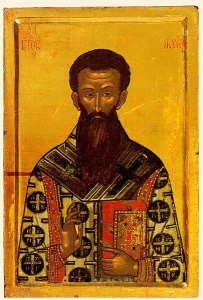 A short while ago, with the strong eyes of faith, we beheld Christ ascending, no less clearly than those accounted worthy to be eye-witnesses.
A short while ago, with the strong eyes of faith, we beheld Christ ascending, no less clearly than those accounted worthy to be eye-witnesses.
Nor are we less favoured than they. “Blessed are they that have not seen, and yet have believed”, says the Lord (John 20:29), referring to those who have found assurance through hearing, and see by faith.
Recently we saw Christ lifted up from the ground bodily (Acts 1:9). Now, through the Holy Spirit sent by Him to His disciples, we see how far Christ ascended and to what dignity He carried up the nature He assumed from us.
Clearly He went up as high as the place from which the Spirit sent by Him descended. He who spoke through the prophet Joel showed us whence the Spirit comes, saying, “I will pour out my spirit upon all flesh” (Joel 2:28), and to Him David addressed the words, “Thou wilt send forth Thy Spirit, and they shall be created; and Thou shalt renew the face of the earth” (Ps. 103:32).
It follows that at His ascension Christ went up to the Father on high, as far as His Fatherly bosom, from which comes the Spirit. Having been shown, even in His human form, to share the Father’s glory, Christ now sent forth the Spirit Who comes from the Father and is sent by Him from heaven.
But when we hear that the Spirit was sent by the Father and the Son, this does not mean that the Spirit has no part in their greatness, for He is not just sent, but also Himself sends and consents to be sent.
This is clearly shown by Christ’s words spoken through the prophet, “Mine hand hath laid the foundation of the earth and stretched out the heavens, and now the Lord God, and His Spirit, hath sent Me” (cf. Isa. 48:13-16). Again, speaking through the same prophet He says, “The Spirit of the Lord is upon me; because the Lord hath anointed me to preach good tidings unto the meek” (Isa. 61:1).
The Holy Spirit is not just sent, but Himself sends the Son, Who is sent by the Father. He is therefore shown to be the same as the Father and the Son in nature, power, operation and honour.
By the good pleasure of the Father and the cooperation of the Holy Spirit, the only-begotten Son of God, on account of the boundless ocean of divine love for mankind, bowed the heavens and came down (Ps. 17:9). He appeared on earth after our fashion, lived among us, and did and taught great, wonderful and sublime things truly worthy of God, which led those who obeyed Him towards deification and salvation.
Gregory Palamas (1296-1359): Homily 24, on Pentecost, 1-2. From Saint Gregory Palamas: The Homilies (Mount Thabor Publishing, 2009), full version online here.
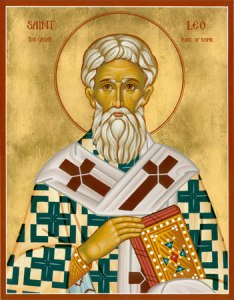 The Lord Jesus does, indeed, say to His disciples, as was read in the Gospel lection, if you loved Me, you would assuredly rejoice, because I go to the Father, because the Father is greater than I.
The Lord Jesus does, indeed, say to His disciples, as was read in the Gospel lection, if you loved Me, you would assuredly rejoice, because I go to the Father, because the Father is greater than I.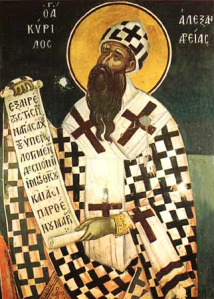 Continued from
Continued from 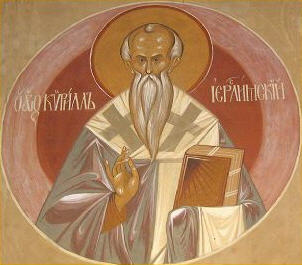 When you were baptized into Christ and clothed yourselves in him, you were transformed into the likeness of the Son of God.
When you were baptized into Christ and clothed yourselves in him, you were transformed into the likeness of the Son of God. Continued from
Continued from 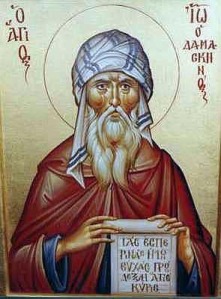 The Father is Father and not Son.
The Father is Father and not Son.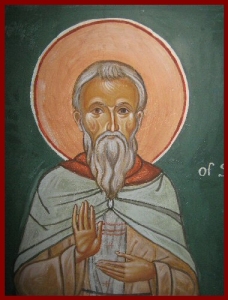 Everyone baptized into Christ should pass progressively through all the stages of Christ’s own life,
Everyone baptized into Christ should pass progressively through all the stages of Christ’s own life,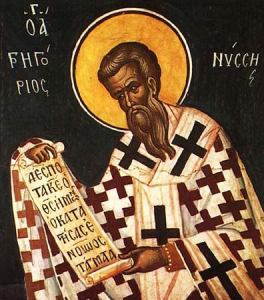 Continued from
Continued from 







